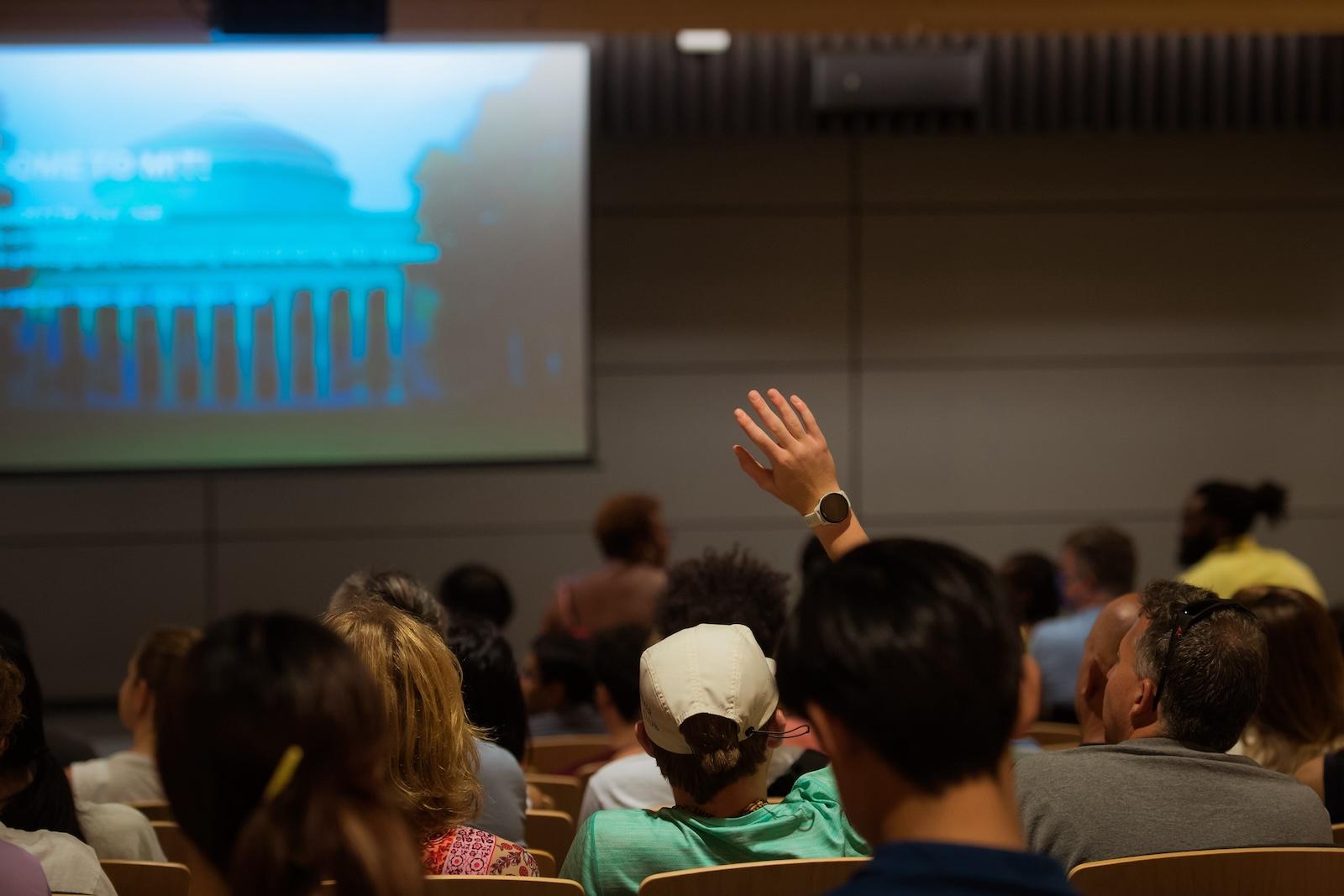Engaging in constructive disagreement and civic activities is crucial for fostering a vibrant campus community, as well as for effecting the change you want to see. Below, you will find examples of how to effectively express disagreement in various scenarios. Additionally, you are encouraged to explore the broader ways to become a changemaker at MIT, such as by running for leadership positions, speaking with Institute leadership, or engaging with the PKG Center.
- Ask respectful questions: Feel free to ask questions, but remember it is not your right to dominate any event or disrupt the ability of speakers or audience members to hear, speak, and participate.
- Free speech: Remember that even if you find the speech offensive, it is most likely protected under free speech laws and policies.
- Maintain safety: Always keep a safe distance and do not respond physically.
- Responding to online posts: Avoid engaging in back-and-forth arguments online, as they are unlikely to solve issues or convince others.
- Remove attention from provocateurs: If someone is being deliberately provocative, removing attention deprives them of the reaction they seek—your outrage.
- Show empathy: Reach out to those who may have been hurt by offensive messages. Hold empathy for those who you may disagree with.
- Prepare to disagree better: Take a class on communication or civic engagement at MIT.
Inside the room
- Peaceful, non-disruptive protest: You may engage in peaceful forms of protest, such as wearing messages on shirts or holding posters, as long as it does not create a disturbance, prevent the speaker from communicating, or block the audience from hearing and seeing the event.
- Leaving the event: Audience members may choose to leave the event, even while a speaker is talking, provided they do not disrupt or obstruct the presentation.
- Event regulations: Event sponsors may regulate what items can be brought in (such as video cameras or recording devices) and what activities attendees may engage in. These regulations are meant to regulate the permissible conduct at the event (time/place/manner) and should be neutral to the content or viewpoint of the event.
- Disruption and obstruction: If you disrupt or obstruct the presentation or fail to comply with Institute officials' directions to stop or leave, you may be in violation of MIT policies and/or the law, which could lead to disciplinary action or prosecution.
Outside the room
- Peaceful protest or picketing: Leafleting, petitions, singing, chanting, or holding signs is allowed in public spaces as long as it follows established time, place, and manner guidelines and does not disturb the event or prevent attendees from entering or leaving.
- Respect entrances and exits: Do not block entrances or exits, impede pedestrian or vehicle traffic, or prevent others from entering, hearing, seeing, or leaving the event.
- Sound amplification: Do not use amplified sound unless it is permitted under 12.7 Protests and Demonstrations.
- Avoid disruption: Do not disrupt Institute functions or activities in nearby offices, labs, libraries, or classrooms, or in locations adjacent to other events or programs using reserved space.
- Organize alternative events: Arrange separate presentations that feature alternative viewpoints, such as teach-ins, public debates, panels, lectures, or counter-demonstrations that follow time, place, and manner guidelines.
- Write editorials or letters: Contribute guest editorials or send letters to campus newspapers such as The Tech or the MIT Faculty Newsletter. See guidance from the Broad Research Communication Lab and Technology Review.
- Engage with MIT leadership and organizations:
- Students: Speak with organizers of the MIT Graduate Student Union (GSU), the MIT Graduate Student Council (GSC), or the MIT Undergraduate Association (UA).
- Faculty: Discuss with faculty officers.
- Staff: Discuss with Employee Resource Groups (ERGs) or set up a time to speak with Human Resources.
- On campus: Run for student office in the UA, GSC, GSU, or other student organizations.
- In the world: Engage with the PKG Center, the epicenter of public service at MIT. Public service is a springboard to take your learning beyond the classroom and into communities around the world through internships, fellowships, and public service projects.
